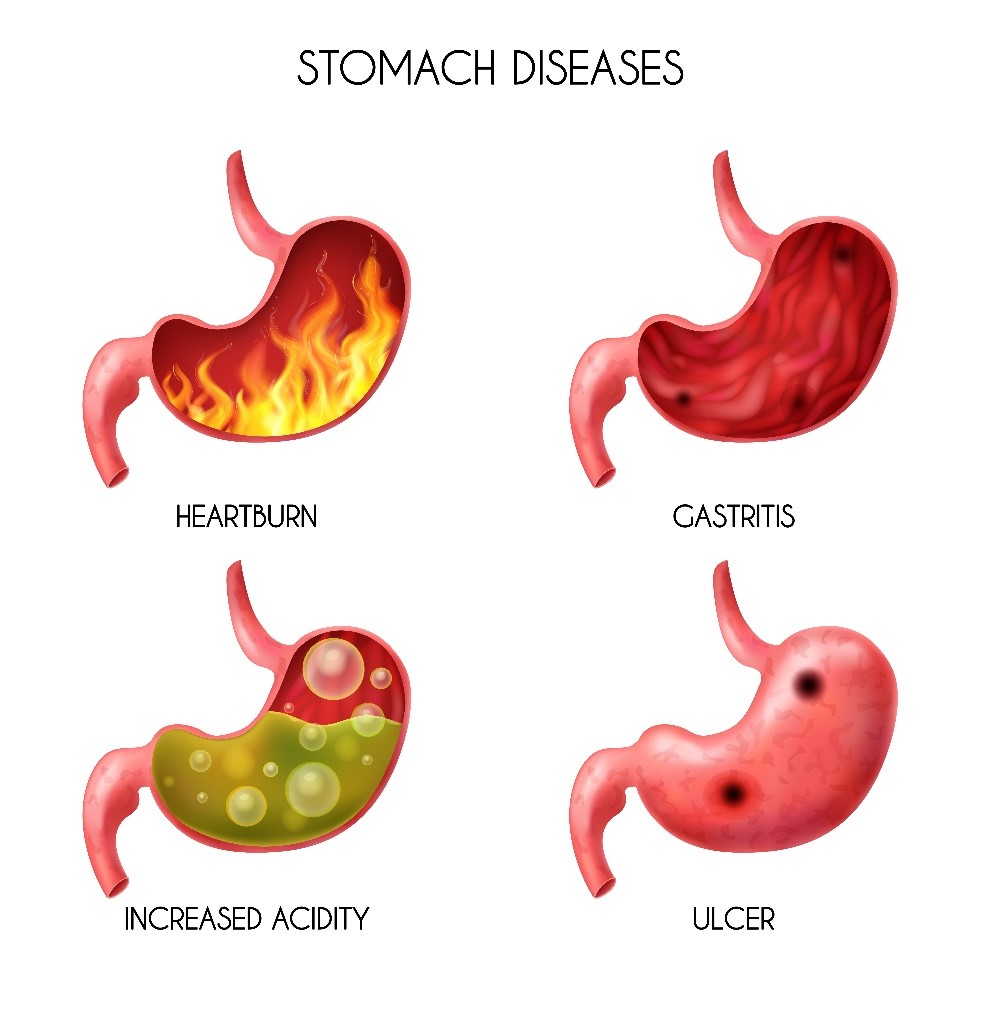Treatments Digestive Disorders Gastric Disorders

Acid Peptic Disorders: Unraveling the Mysteries of Stomach Health
Acid peptic disorders encompass a range of conditions characterized by an imbalance in the production and protective mechanisms of stomach acid. The two most prevalent disorders in this category are gastric ulcers and gastroesophageal reflux disease (GERD).
Our digestive system is a complex network of organs responsible for breaking down food and extracting vital nutrients. At the center of this process lies the stomach, a muscular organ that plays a critical role in digestion. However, sometimes the delicate balance of the stomach’s acid production can be disrupted, leading to a group of conditions collectively known as acid peptic disorders. In this blog, we will delve into the intricacies of these disorders, explore their causes, symptoms, and treatment options, and emphasize the importance of maintaining a healthy stomach for overall well-being.
Understanding Acid Peptic Disorders:
Acid peptic disorders encompass a range of conditions characterized by an imbalance in the production and protective mechanisms of stomach acid. The two most prevalent disorders in this category are gastric ulcers and gastroesophageal reflux disease (GERD). Let us take a closer look at each of these conditions.
Gastric ulcers are open sores that develop on the lining of the stomach. They are primarily caused by an infection with the bacterium Helicobacter pylori (H. pylori) or by prolonged use of nonsteroidal anti-inflammatory drugs (NSAIDs) such as aspirin or ibuprofen. Stress and genetic predisposition can also contribute to their development. The symptoms of gastric ulcers often include abdominal pain, bloating, heartburn, and nausea. If left untreated, they can lead to complications like bleeding or perforation.
GERD occurs when the lower esophageal sphincter (LES), a ring of muscle that normally prevents stomach acid from flowing back into the esophagus, becomes weakened or relaxed. This results in the regurgitation of stomach acid into the esophagus, causing heartburn, chest pain, and an unpleasant sour taste in the mouth. Chronic GERD can lead to esophagitis (inflammation of the esophagus) and other complications.
Causes and Risk Factors:
Several factors contribute to the development of acid peptic disorders. As mentioned earlier, H. pylori infection and prolonged NSAID use are significant culprits in gastric ulcers. Other risk factors include excessive alcohol consumption, smoking, high-stress levels, and a diet high in spicy or acidic foods. In the case of GERD, obesity, pregnancy, hiatal hernia, and certain medications can increase the risk of developing the condition.
Treatment Options:
The treatment of acid peptic disorders involves a combination of lifestyle modifications, medications, and, in some cases, surgical interventions. Here are some common approaches:
a) Dietary Changes: Avoiding trigger foods like caffeine, spicy foods, citrus fruits, and fatty or fried foods can help alleviate symptoms.
b) Weight Management: Maintaining a healthy weight reduces pressure on the stomach and esophagus.
c) Smoking Cessation: Quitting smoking can significantly improve symptoms and promote healing.
a) Proton Pump Inhibitors (PPIs): These drugs reduce stomach acid production and promote healing of ulcers.
b) H2 Blockers: These medications decrease the production of acid and provide relief from GERD symptoms.
c) Antacids: They provide short-term relief by neutralizing stomach acid.
All these medications cannot be taken for a longer period, from here comes the role of Homeopathy. DR. SINGH’S HOMEOPATHY EXCELS IN THE TREATMENT OF ACID PEPTIC DISORDERS AND WE HAVE CURED THOUSANDS; SUFFERING FROM GASTRITIS, HEARTBURN, ACIDITY, ETC. Homeopathy is very effective in the treatment of Peptic ulcers and GERD.
Conclusion:
Acid peptic disorders can significantly impact a person’s quality of life if left untreated. Understanding the causes, symptoms, and treatment options is crucial for effectively managing these conditions. Adopting a healthy lifestyle, including a balanced diet, regular exercise, stress management, avoiding risk factors, along with Homeopathic medications, can go a long way in preventing the development or worsening of acid peptic disorders. If you experience persistent digestive symptoms, it is essential to consult DR. SINGH’S HOMEOPATHY for proper diagnosis and personalized treatment.
Remember, a healthy stomach is the cornerstone of overall well-being, so let us prioritize our digestive health and savor a life free from acid peptic disorders.

